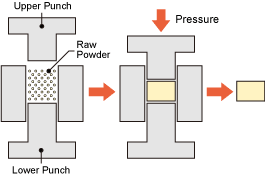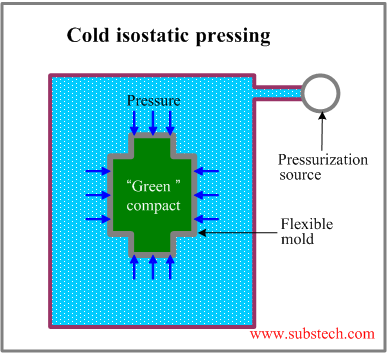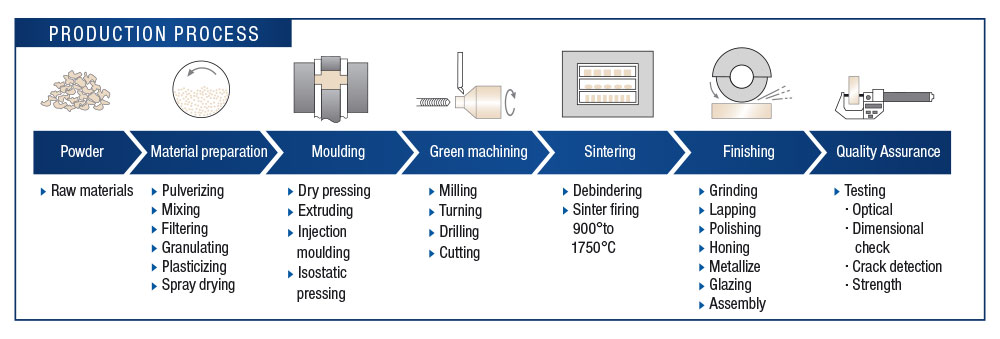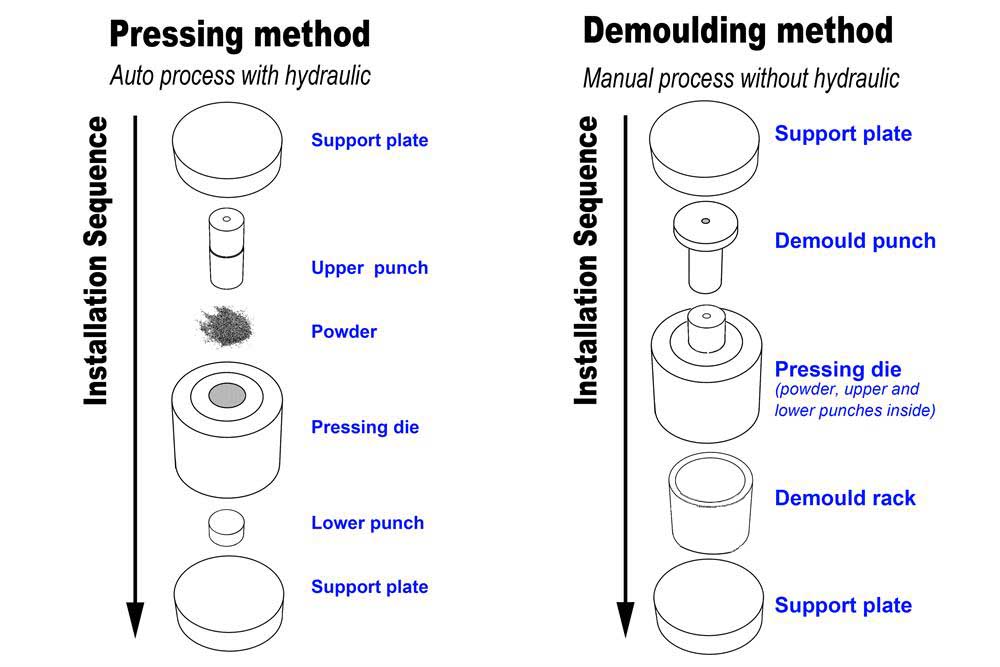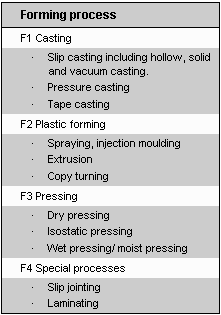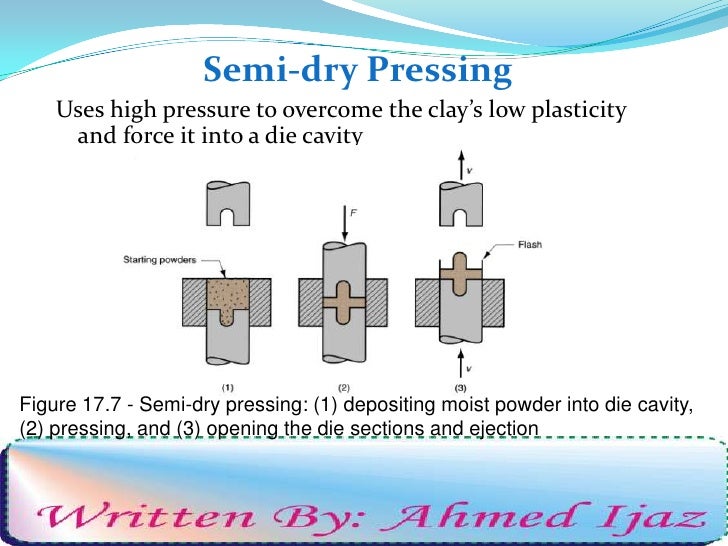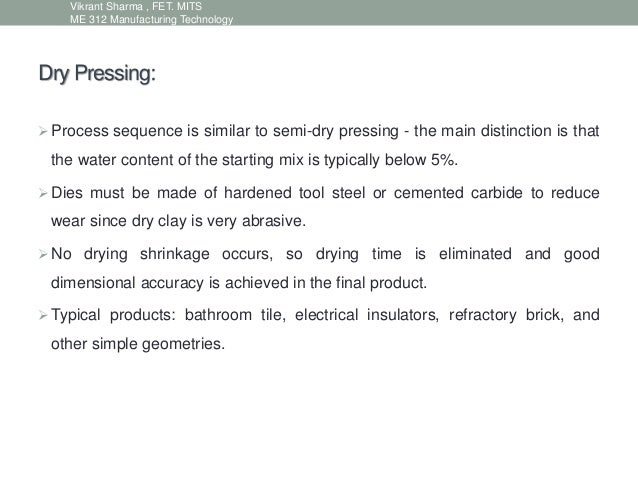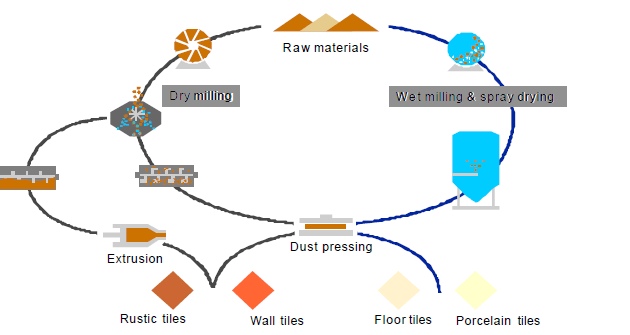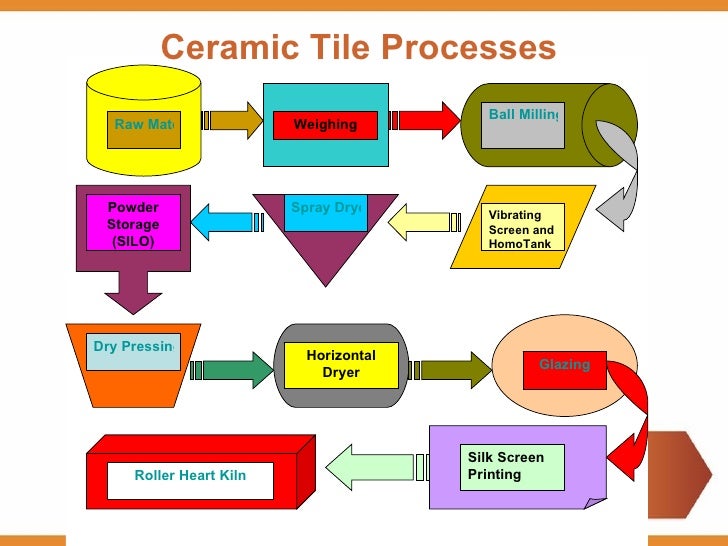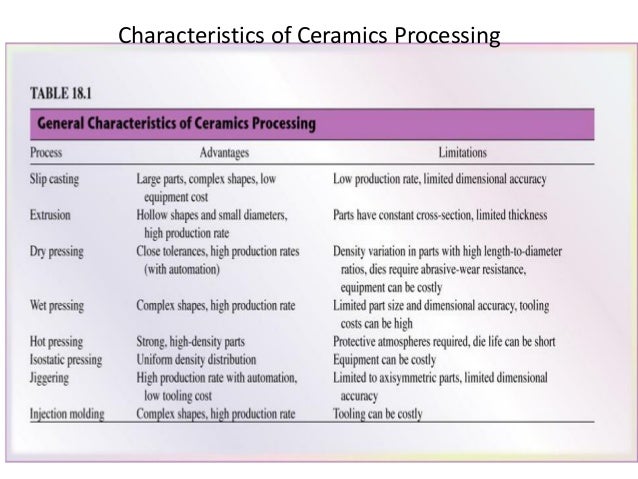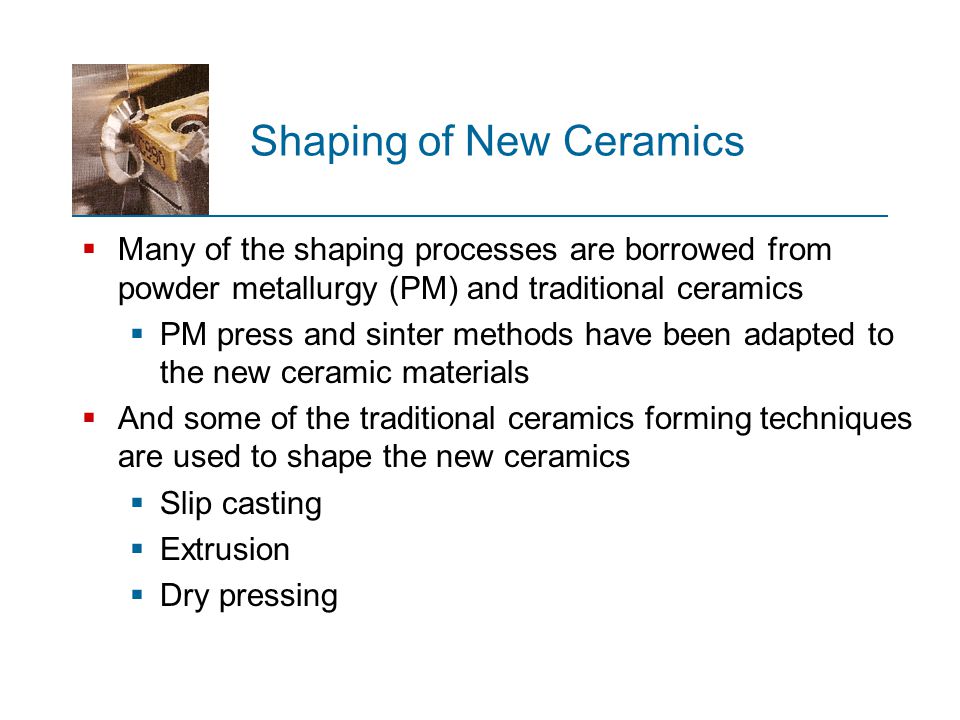The powder is granulated by adding a small amount of binder and then loaded into a mold and pressed on a press to make the particles close to each other in the mold and firmly joined by internal friction to form a blank of a certain shape.
Ceramic dry pressing process.
1 drying pressing dry pressing refers to a method of forming a blank which is more commonly used in ceramic production.
The process is also known as dry pressing to emphasize the point that the powders themselves are dry there may be a small amount of moisture in some powders but compared to the processes described in chapter 6 these powders are indeed dry.
The first step in the process is the preparation of the starting powder.
Binders plasticizers they coat the powder and provide lubrication during pressing and temporary bond after pressing.
Basically all ceramic materials can be used.
After reading the post you can control the whole manufacturing process better and fix the potential problems more effectively.
A pressing tool for axial dry pressing consists of a pressing die and upper and lower punches.
The drying process in the ceramic industry is the greatest energy consumer second to the firing process.
The punches can be divided into different segments depending on how complex the component is.
A fill shoe is used to feed the pressing granulate into the mold.
The application of pressure enhances the densification of the ceramic during firing.
Which is similar to the forming process of dry pressing except that the pressing is conducted at the firing temperature.
A minimum of water is added the material is placed in steel molds and pressures up to 1 500 pounds per square inch 10 000 kilopascals are applied.
Plasticity are used in the dry press process.
Dry pressing is a common molding method in the production of special ceramics because it has simple process convenient operation short cycle and high efficiency which is convenient for automatic production.
The resulting green part must later be sintered in a kiln.
Free flowing can be achieved by granulation or spray drying.
The compaction process permits an efficient production of parts to close tolerances with low drying shrinkage.
Required ceramic forming techniques.
Compaction of ceramic powders is a forming technique for ceramics in which granular ceramic materials are made cohesive through mechanical densification either by hot or cold pressing.
Ceramic forming methods include throwing slip casting tape casting freeze casting injection molding dry pressing hot isostatic pressing hip and others.

